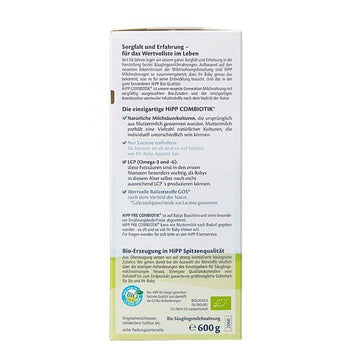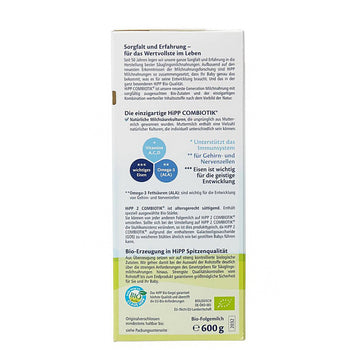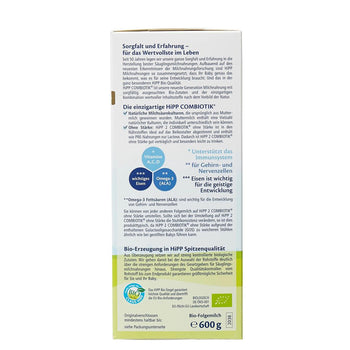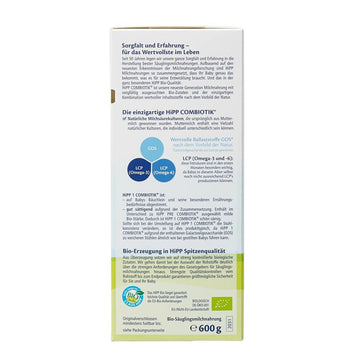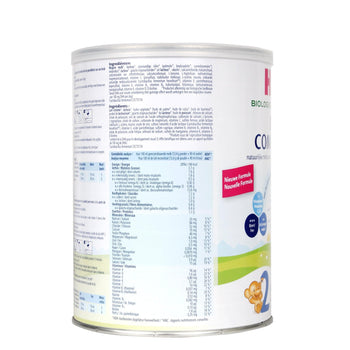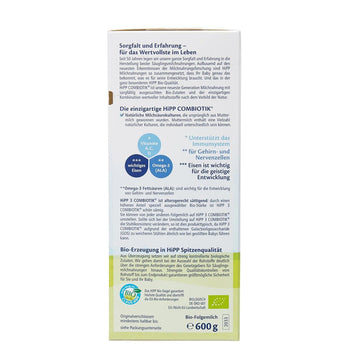The nutritional needs of infants are unique and critical to their growth and development. As such, choosing the right infant formula is a significant decision for parents who can't or choose not to breastfeed. In recent years, European infant formulas have gained popularity among parents worldwide, raising the question: Are European infant formulas better? This blog post will delve into this topic, examining the characteristics that set European infant formulas apart.
Understanding Infant Nutrition Needs
Before comparing different types of infant formulas, it's important to understand what nutrition an infant needs. The first six months of a baby's life are crucial for their growth and development. During this period, they require specific nutrients such as proteins, fats, carbohydrates, vitamins and minerals in the right proportions.
Breast milk is considered the gold standard for infant nutrition as it provides all these nutrients in perfect balance. However, when breastfeeding is not an option or needs to be supplemented, parents turn to infant formula.
What Sets European Infant Formula Apart?
European infant formulas have been lauded for their high quality and strict safety standards. These standards are largely due to regulations set by the European Union (EU), which are more stringent than those in other regions including the United States.
1) Ingredient Quality: EU regulations mandate that all ingredients used in baby formula must be safe and suitable for infants' delicate digestive systems. This means no artificial sweeteners or preservatives are allowed.
2) Nutrient Composition: The EU also has strict guidelines on nutrient composition in baby formula. For instance, it requires a specific ratio of omega-3 to omega-6 fatty acids that closely mimics breast milk.
3) GMO-Free: All EU-produced baby formulas must be free from genetically modified organisms (GMOs). This is not a requirement in many other countries.
4) Strict Manufacturing Standards: Manufacturing plants producing these formulas must adhere to rigorous hygiene and safety standards. They are regularly inspected to ensure compliance.
5) Transparency: European infant formula brands are known for their transparency, providing detailed information about the ingredients and manufacturing process.
Comparing European Infant Formulas with Others
When compared to American formulas, for instance, European infant formulas often come out on top due to the reasons mentioned above. American formulas often contain corn syrup solids or other sweeteners, which are not allowed in EU-produced formulas.
Moreover, some American formulas contain GMOs and lack the transparency that is characteristic of European brands. However, it's important to note that there are high-quality infant formulas produced in the U.S. and other regions as well.
Are European Infant Formulas Better?
The answer to this question largely depends on individual needs and preferences. While European infant formulas have strict regulations ensuring high quality and safety standards, it doesn't necessarily mean they are superior in every aspect or suitable for every baby.
Some babies might have specific nutritional needs or allergies that require special formula types not available among European brands. Moreover, availability and cost can also be deciding factors for many parents.
In conclusion, while European infant formulas offer high-quality ingredients and strict safety standards due to EU regulations, the "best" formula ultimately depends on your baby's unique needs. It's always recommended to consult with a pediatrician before making any changes to your baby's diet.
Remember that all approved infant formulas, regardless of their origin, are designed to support healthy growth and development in infants. The most important thing is that your baby is getting the nutrition they need in a form that suits them best.















